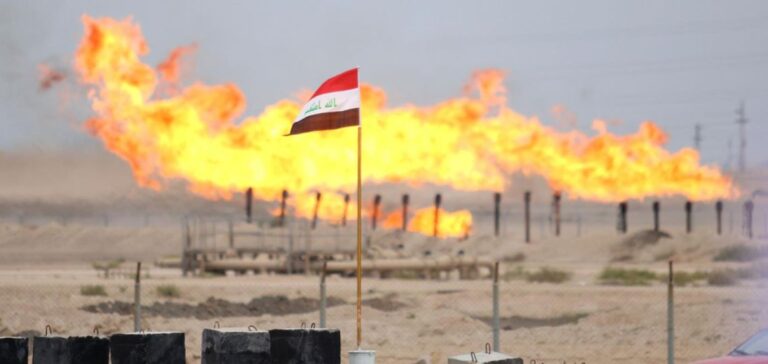Iraq has formalised a major agreement with a consortium led by Chinese oil group Geo-Jade to launch a large-scale energy project in the Basra region. The Iraqi Ministry of Oil announced that the Tuba oil field will see its production multiplied fivefold to reach 100,000 barrels per day, according to Minister Hayan Abdel-Ghani.
An integrated project combining oil, refining and electricity
The project includes several strategic energy infrastructures. In addition to expanding production at the Tuba field, it plans the construction of a refinery with a capacity of 200,000 barrels per day, as well as two processing plants: one for petrochemicals and the other for fertiliser. Two power stations will complete the development—one thermal with a capacity of 650 megawatts and the other solar with 400 megawatts.
The Iraqi government has not yet disclosed either the investment amount or the implementation timeline. Geo-Jade, already operating in the country, is also involved in a controversial oil exploration project near the Hawizeh Marshes, an environmentally sensitive area in the south.
Strengthened Sino-Iraqi cooperation in energy
China is reinforcing its economic presence in Iraq through partnerships in energy and construction sectors. Beijing is among the main importers of Iraqi crude oil. This latest agreement is part of a series of initiatives aimed at rebuilding the country’s energy infrastructure, which has often been damaged by decades of conflict and inadequate public management.
At the end of March, Baghdad had already signed an agreement with British group BP to rehabilitate four oil fields in Kirkuk, in the north, which also included electricity components. In April, Iraq exported an average of more than 3.5 million barrels of oil per day, confirming its position as the second-largest producer in the Organisation of the Petroleum Exporting Countries (OPEC).
A partial response to the domestic energy crisis
With 145 billion barrels of proven reserves, Iraq has substantial resources but still struggles to meet domestic demand. Power outages are frequent, especially during the summer months, when temperatures regularly exceed 50 degrees Celsius. These blackouts often lead to social unrest, prompting authorities to accelerate projects aimed at increasing and diversifying energy production.






















